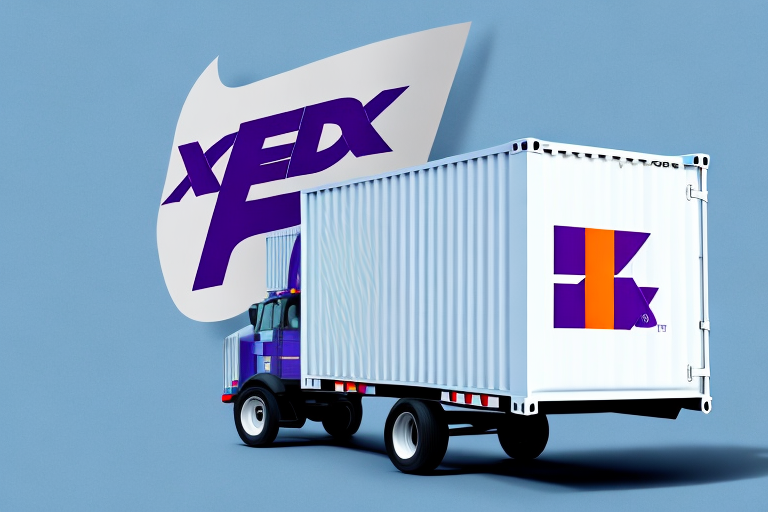Understanding the Importance of Auditing at FedEx
If you're at all familiar with the business world, you've probably heard of the term "audit." For those associated with a large company like FedEx, chances are you've been through the process yourself. Auditing is an essential part of any successful business, and companies like FedEx take it seriously. In this article, we'll take a deep dive into the audit process at FedEx to help you better understand what it is, why it's important, and how it can benefit your business.
Why Auditing is Crucial for FedEx
Ensuring Financial Accuracy and Compliance
As one of the world's largest transportation companies, FedEx manages a vast network of assets, employees, and customers. Audits help ensure that the company's financial records, processes, and procedures are accurate and in compliance with legal and ethical standards. This transparency and accountability are essential for sustained success in any business.
Identifying Risks and Operational Weaknesses
Auditing also helps identify potential risks and weaknesses in the company's operations, allowing management to take corrective actions before they escalate into major issues. This can include pinpointing areas where cost savings can be made or where operational efficiencies can be improved.
Driving Business Performance and Growth
Additionally, audits provide valuable insights into the company's overall performance, helping to identify opportunities for growth or areas where the company can better serve its customers. According to a Deloitte report, effective auditing practices can lead to significant improvements in organizational performance.
Types of Audits at FedEx: Internal vs External
Internal Audits
Internal audits at FedEx are conducted by the company's own audit team on a regular basis to ensure smooth and efficient operations. These audits cover a wide range of areas, including financial reporting, risk management, and information technology. The internal audit team collaborates closely with different departments to identify potential issues and recommend solutions to enhance processes and procedures.
External Audits
External audits, typically conducted annually by independent auditors, ensure that FedEx complies with all relevant laws and regulations. These audits cover areas such as financial reporting, tax compliance, and environmental regulations. The PricewaterhouseCoopers (PwC) external audit standards are often referenced to maintain consistency and reliability in these assessments.
The Audit Process at FedEx
Defining the Scope
The first step in the audit process is to identify the scope of the audit, determining which specific processes or functions will be subject to review. This ensures that the audit is focused and relevant.
Data Collection and Analysis
Once the scope is defined, the audit team gathers and analyzes data related to that area. This data may include financial records, employee records, and other pertinent information. Modern data analytics tools, such as those discussed in a Deloitte Technology Report, enhance the accuracy and efficiency of this process.
Reporting Findings
After analyzing the data, the audit team issues a report detailing their findings. This report highlights any discrepancies, risks, or areas for improvement identified during the audit.
Implementing Recommendations
The final step involves taking action to address the issues identified in the report. The audit team follows up to ensure that the necessary changes have been made, thereby closing the loop on the audit process.
The Role of Auditors at FedEx
Financial Analysis and Risk Identification
Auditors at FedEx are trained professionals who analyze financial data to identify potential areas of risk, inefficiency, or non-compliance. They work closely with various teams within the company to gather and assess data, providing actionable recommendations for improvement.
Maintaining Reputation and Credibility
By conducting thorough and accurate audits, auditors help ensure that FedEx's financial statements are reliable and trustworthy. This reliability builds trust with investors, customers, and other stakeholders, enhancing the company's reputation. According to the American Institute of CPAs (AICPA), credible financial reporting is critical for investor confidence.
Identifying Opportunities for Efficiency
Auditors also identify opportunities for cost savings and process improvements, which can lead to increased efficiency and profitability for the company.
Challenges in FedEx's Audit Process
Data Collection Across Diverse Systems
One of the most common challenges is gathering all necessary data from various sources, especially given FedEx's global operations. Managing large volumes of financial data across multiple departments can be daunting.
Staying Compliant with Evolving Regulations
Ensuring compliance with constantly changing regulatory requirements is another significant challenge. Keeping up-to-date with these changes necessitates a comprehensive understanding of current laws and ongoing education and training.
Effective Communication
Maintaining clear and effective communication among stakeholders during the audit process is crucial. Addressing issues or concerns promptly requires strong communication skills and the ability to navigate complex organizational structures.
Technological Advancements in FedEx's Audit Process
Adoption of Data Analytics
Advances in technology, particularly data analytics, have revolutionized the audit process at FedEx. By utilizing sophisticated algorithms and machine learning, FedEx can analyze vast amounts of financial data in real-time, identifying patterns and anomalies that might otherwise go unnoticed. This proactive approach allows for quicker identification and resolution of issues.
Enhanced Risk Management Tools
Advanced risk assessment tools enable the audit team to identify potential risks and vulnerabilities in FedEx's financial systems and processes. This reduces the risk of fraud and other financial irregularities, allowing the company to address potential issues before they escalate.
Streamlined Audit Processes
Digital tools and software have streamlined data gathering and analysis, improving the overall accuracy and efficiency of the audit process. This technological integration minimizes disruptions to business operations and enhances the audit team's ability to provide detailed and accurate insights.
Preparing for an Audit at FedEx
Maintaining Accurate Financial Records
Ensure that all financial records are up-to-date and accurate. Accurate records are foundational for a successful audit and help facilitate a smooth review process.
Understanding Audit Scope
Have a clear understanding of the specific processes or areas that will be reviewed. This preparation helps focus efforts where they are most needed and ensures comprehensive coverage.
Documenting Policies and Procedures
Ensure all company policies and procedures are documented and current. This includes employee training manuals, safety protocols, and operational guidelines. Organized documentation can streamline the audit process and demonstrate the company's commitment to compliance.
Effective Team Communication
Communicate with your team about the upcoming audit. Assign specific roles and responsibilities, and provide training or guidance on audit preparation. Involving your team ensures that everyone is aligned and working towards a successful audit outcome.
Best Practices for Conducting Audits at FedEx
Defining Scope and Timeline
Clearly define the scope of the audit and establish a realistic timeline for completion. A well-defined scope ensures relevant areas are thoroughly reviewed, and a timeline helps manage expectations and resources effectively.
Collaborative Approach
Work closely with the audit team and maintain transparency about any potential issues or challenges. A collaborative approach fosters trust and facilitates more effective problem-solving.
Implementing Audit Recommendations
Be prepared to act on the audit team's recommendations. Implementing these suggestions can lead to significant improvements in business operations and compliance.
Engaging All Stakeholders
Involve all relevant stakeholders, including third-party vendors or partners affected by audit findings. Ensuring all parties are engaged helps in the smooth implementation of necessary changes.
Maintaining Open Communication
Keep lines of communication open throughout the audit process. Regular updates and responsiveness to questions or concerns help ensure the audit progresses smoothly and issues are addressed promptly.
Impact of Auditing on FedEx's Business Operations
Enhancing Efficiency and Compliance
The primary goal of auditing at companies like FedEx is to identify areas for improvement, ensuring the company operates more efficiently and effectively. By analyzing financial data, identifying potential risks, and making improvement recommendations, the audit team ensures compliance with legal and ethical standards.
Building Trust and Confidence
Increased transparency and accountability through robust auditing practices build trust and confidence among customers, employees, and stakeholders. This trust is crucial for the company's reputation and long-term success.
Technological Improvements
Auditing has directly contributed to technological advancements at FedEx. For example, the audit team identified that the company's outdated tracking system was causing delays and errors in package delivery. They recommended implementing a new, more efficient tracking system, which significantly improved delivery times and reduced errors, leading to increased customer satisfaction and loyalty.
For more information on effective auditing practices and their impact on business operations, you can refer to IFAC's resources on auditing.




















